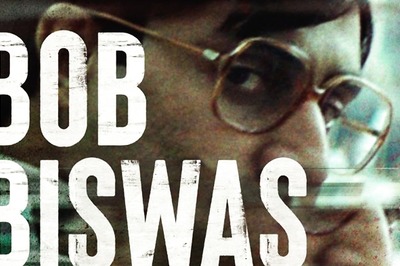
views
Corporate
Starring: Bipasha Basu, Kay Kay Menon, Raj Babbar and Rajat Kapoor
Direction: Madhur Bhandarkar
Now director Madhur Bhandarkar exposed the double standards and the dark underbelly of Mumbai's gliteratti in his last film Page 3, and in his new film Corporate which opens at cinemas this week, he's taken on the business sector. The plot's pretty basic.
Two big rival companies led by Raj Babbar and Rajat Kapoor respectively, have been involved in a battle of one-upmanship for years. The latest incident that triggers off a clash between the two companies occurs when Bipasha Basu, a senior executive in Rajat Kapoor's company deceitfully steals a business plan for a new cola brand that Raj Babbar's company is preparing to launch in the market.

Rajat Kapoor's company then launches a similar cola well before their rivals had intended to launch theirs, thus killing the competition's plan of action. But business is a dirty game, so next thing you know, Raj Babbar has decided it's payback time.
Overnight, he causes the downfall of Rajat Kapoor's company and gets them entangled in a messy legal case. Like I just said, business is a dirty game. Friends and family are sacrificed for fortune, and often the innocent must take the fall for the guilty.
My most basic, my most intrinsic problem with Corporate is that Bhandarkar doesn't tell me anything that I didn't already know about how businesses are conducted.
Cut-throat rivalry, unethical advantages, sexual politics - I mean, haven't we all read or heard about such instances many times over? I'm not denying that Bhandarkar's intentions are noble. Sure they are. But his execution and his storytelling leaves a lot to be desired.
Like Page 3, Bhandarkar's Corporate also suffers from a very low-budget feel and you're willing to overlook even that. But what you cannot really ignore - second time over - is that Bhandarkar doesn't really know his characters all that well.
PAGE_BREAK
They're mostly cardboard caricatures and clichés walking in and out of scenes. What becomes clear once again in Corporate is that the characters Bhandarkar is most comfortable bringing to life, are the potty-mouthed observers who he gives all the best lines to — like the chauffers of the rich and the famous in Page 3, and in Corporate, the office peons.
Another reason Corporate fails to engage is because the lesson or the moral on which the entire screenplay is constructed, seems flawed at its very core. A voice-over at the end says people must not get too involved in their jobs.
The film claims that very often the innocent pay the price for the mistakes made by the guilty. And while that may not be entirely untrue in principle, in the case of this film, Bipasha Basu who takes the rap in the end, can hardly be described as innocent.

She's not paying the price for her ambition, she's paying the price for being deceitful. And it is because of this basic flaw that the story comes down like a pack of cards.
Is it just me or do you also find Bhandarkar's repeated use of smutty scenes a little off-putting? In Chandni Bar, he filmed a boy being sodomised in prison. In Page 3, a journalist walking in on her boyfriend having sex with her male best friend. And in Corporate, there's an extended bedroom scene between a business executive and a high-class hooker.
Now don't get me wrong, I'm not prudish — far from it. But I find that Bhandarkar's way of filming these scenes, and their very intention in the story is to create sensation. These scenes have a particularly invasive, voyeuristic feel to them, which I'm a little uncomfortable with.
On the same note, I also find that in the name of realism, the director takes a very cynical, grim view of the world he is portraying. Quite simply, is there nothing besides backstabbing and betrayal in the boardroom?
All said and done, it's in the film's second half that the pace picks up and you find yourself somewhat involved in what's going on. Much of that can be credited directly to the performance of the film's two protagonists — Bipasha Basu and Kay Kay Menon who rise above the fractured script.
Madhur Bhandarkar's biggest success on Corporate is in deriving a career-best performance from Bipasha who — for the most part — divests herself of her glamorous trappings and instead, approaches the character as one most people might relate to.
Kay Kay Menon as Bipasha's colleague and soulmate is top of the pops — it's the little nuances, the little touches that he brings to his role, that make it out of the ordinary.
So that's two out of five for Corporate, a film that's just as dull and dry as most of those boardroom meetings that it's a reflection of. Corporate is clearly well-intended, but it also suffers from the director's bad habit of taking himself too seriously.
My advice to Madhur Bhandarkar — just chill.
Rating: 2 / 5 (average)




















Comments
0 comment